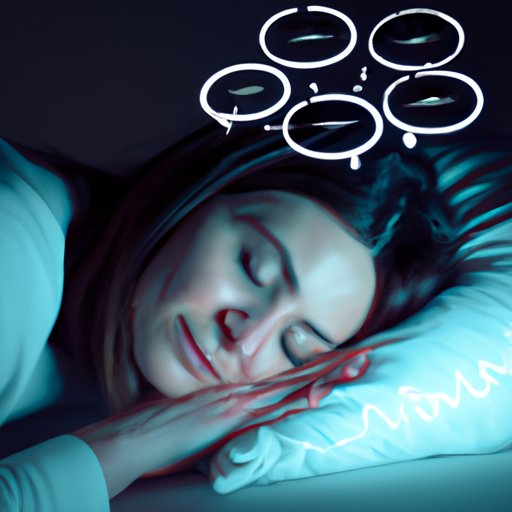
Introduction
Getting a good night’s sleep is essential for our overall health and well-being. When we sleep, our bodies can recharge and regenerate, allowing us to wake up feeling refreshed and ready to take on the day. Unfortunately, many of us regularly struggle to get the recommended amount of sleep due to a variety of factors. Despite the widespread belief that sleep deprivation is simply an inconvenience, it can have serious consequences on our mental health.
The Real-Life Impact of Sleep Deprivation
To understand just how potent the effects of sleep deprivation can be, let’s consider an anecdote. Imagine someone who is working a full-time job and also juggling personal and family responsibilities. Despite going to bed at a reasonable time every night, they find themselves struggling to actually fall asleep. They toss and turn for hours, checking their phone when they can’t sleep, then wake up feeling groggy and unprepared to face the day ahead.
This person’s lack of sleep could easily have ripple effects on their life. They might become more irritable with loved ones, have difficulty concentrating on work, or lose motivation to take care of themselves through physical activity or a healthy diet. Over time, this lack of sleep could also trigger or worsen underlying mental health conditions, causing anxiety, depression, and a host of other problems.
The Science of Sleep and Mental Health
So, what’s going on in the brain that makes sleep so critical to mental health? During sleep, our brains undergo a complex series of processes that allow us to store and consolidate memories, regulate our emotions, and refresh our mental energy. Without enough sleep, these systems are disrupted, leading to a host of symptoms related to mental health.
One major issue that can develop due to lack of sleep is irritability and difficulty regulating emotions. When we are sleep-deprived, the parts of our brain responsible for emotional processing and regulation become more reactive, leading to heightened stress and anxiety levels. Additionally, a lack of sleep can alter the brain’s ability to process and store information, leaving us feeling scattered and forgetful.
Research backs up the connection between sleep and mental health, with studies showing that those who report poor sleep tend to be at a higher risk for a range of mental health conditions, including depression and anxiety. In fact, some research suggests that correcting sleep issues may even be an effective strategy for treating these conditions over the long term.
Practical Tips for Improving Sleep
Fortunately, there are a number of practical steps that anyone can take to improve their sleep hygiene and promote better mental health. Here are a few to try:
– Create a sleep-friendly environment by keeping your bedroom cool and dark, minimizing noise and distractions, and investing in comfortable bedding and pillows.
– Develop a consistent sleep routine by going to bed and waking up at the same time every day, including on weekends. This can help regulate your body’s internal clock and make it easier to fall asleep naturally.
– Avoid common sleep disruptors like caffeine, alcohol, and nicotine in the hours leading up to bedtime, and limit your exposure to screens and bright lights in the evening.
– If you’re still struggling to sleep, consider trying relaxation techniques like deep breathing or meditation, or speak with your healthcare provider to see if medication or therapy may help.
The Importance of Seeking Professional Help
If you are struggling with mental health issues related to sleep deprivation, it is important to seek professional help. While practical tips can certainly help improve your sleep and overall well-being, they are not always enough to address underlying mental health conditions.
Speaking with a therapist or healthcare provider can help you identify any underlying issues that may be affecting your sleep, as well as provide you with targeted strategies for improving your mental health. Don’t hesitate to reach out if you need support – seeking help is a sign of strength, and can be a crucial step towards getting back on track.
Conclusion
Lack of sleep is a common issue that affects many of us, but it is important to understand just how critical it is for our mental health. Sleep deprivation can lead to a range of problems, from irritability and emotional dysregulation to more serious mental health conditions like depression and anxiety. By taking practical steps to improve your sleep hygiene and seeking professional help if needed, you can take control of your mental health and achieve better overall well-being.
Resources
If you’re struggling with sleep or mental health issues related to lack of sleep, here are a few resources that may be helpful:
– National Sleep Foundation: www.sleepfoundation.org
– American Psychological Association: www.apa.org/topics/sleep/index.aspx
– National Institute of Mental Health: www.nimh.nih.gov/health/topics/sleep-disorders/index.




